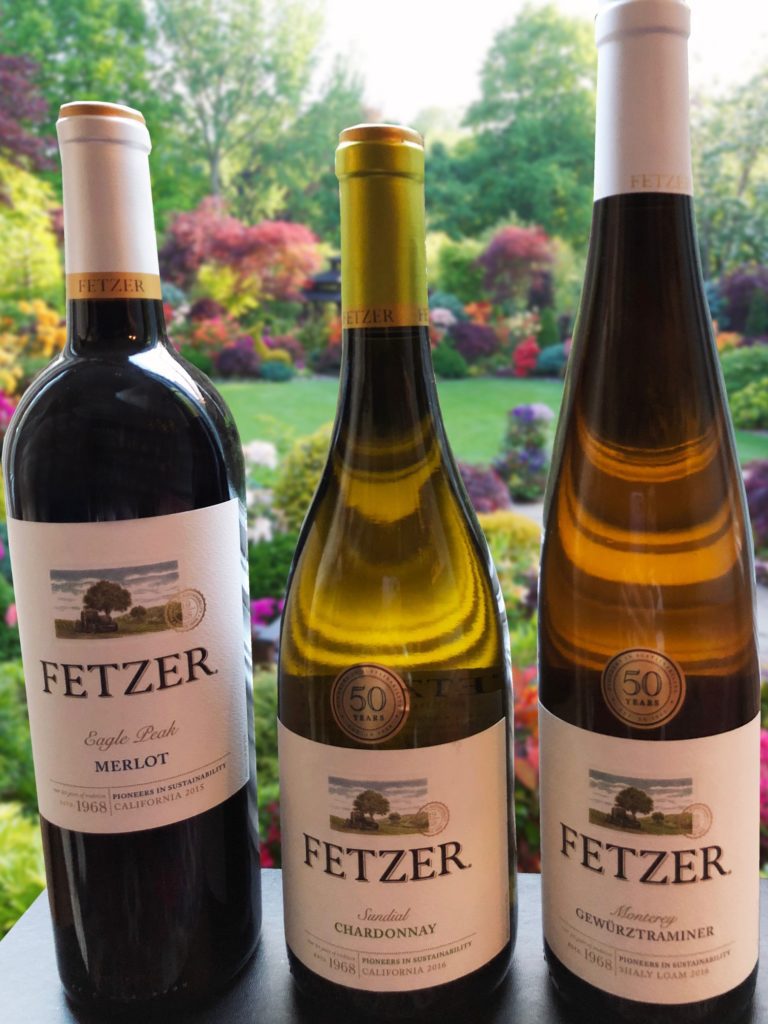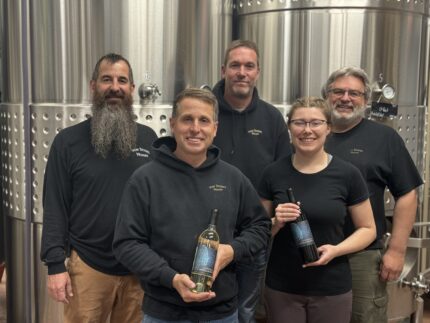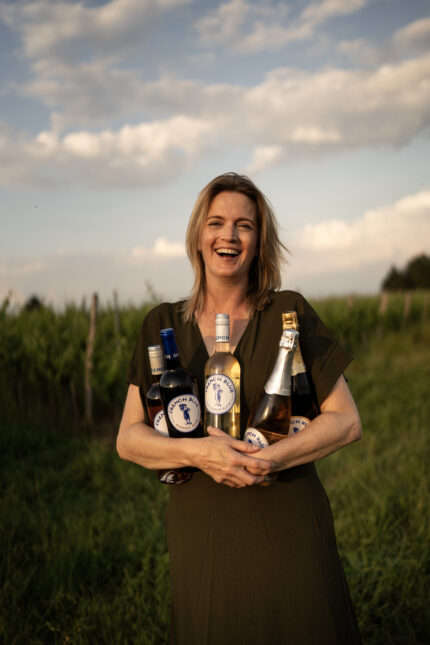January’s #winestudio taught me I was fast to jump to conclusions and it once again unveiled what I knew to be true about wine – I have so much more to learn.
When I heard that we were going to spend a month discussing Fetzer Vineyards, I remember saying to my husband, “what exactly is there to talk about for a month?” But, as we peeled back the onion, layer by layer, week after week, I found myself enthralled in the conversations.
And I realized that there was so much more to know about Fetzer beyond the wines found in my local grocery store. This is a brand with a 50 years history of making the world a better place with earth-friendly winegrowing and one that does not do so just for positive press. I hope my column helps more people understand the difference Fetzer has, and continues, to make.
When I worked in marketing for many large brands, I remember what an effort it took to put out a corporate social responsibility report. This wasn’t standard practice for large corporations and when I heard Fetzer talk about the fact that they released their first Road to Regeneration: Corporate Consciousness Report in 2016, I was dumbfounded. This winery is planning for a Net Positive Future by 2030.
Let’s define Net Positive. It means replacing negative impacts of your business with positive impacts that enhance and regenerate ecosystems and communities while moving your business forward sustainably.
Taking from Fetzer’s site, the impressive milestones include a conversion to 100% organic farming in its Mendocino County, California vineyards in the 1980s; becoming the first U.S. vintner to operate on 100% green power, in 1999; reporting and verifying greenhouse gas emissions to The Climate Registry as early as 2005, the first U.S. winery to do so; becoming the first winery to achieve TRUE Zero Waste certification, in 2014; and becoming the world’s largest winery to obtain B Corporation certification, in 2015.
Here’s a link to the report.
And the world has already taken notice (and I’m ashamed I hadn’t). In 2017, The United Nations presented Fetzer with a Momentum for Change Award and two years before that, it was the only winery to present at the Paris Climate Talks.
About Fetzer Vineyards
Fetzer was founded fifty years ago by Barney Fetzer in Mendocino County, California, with a goal of making wines from sustainable, organic and biodynamic grapes. In addition to Fetzer, the winery also Bonterra Organic Vineyards, Adorada, Anthony’s Hill, Jekel Vineyards, Sanctuary Wines and 1000 Stories, a Bourbon barrel-aged Zinfandel and Petite Sirah. It is part of the Viña Concha y Toro family.
Over January, we focused on three different brands from the Fetzer family.
Our first session was a focus on the Fetzer wines where we tried the following:
2016 Fetzer Sundial Chardonnay – I tasted notes of butterscotch, pineapple, citrus, pear and melon.
2016 Fetzer Shaly Loam Gewurtztraminer – By far, my favorite of the tasting with notes of peach, tangerines, pineapple and apricot.
2015 Fetzer Eagle Peak Merlot – Notes of blackberry, red licorice, black cherry, sage, chocolate, caramel and blueberry.
Our second session was with 1000 Stories, where Winemaker Bob Blue uses dry-farmed, head trained Zinfandel wines aged in traditional American and French oak barrels before introducing them to new bourbon barrels. I loved the innovation, but this is a matter of personal preference. I found that I these weren’t to my personal taste, but there was an entire group of bloggers on the chat that loved them.
2015 1000 Stories Half Batch Petite Sirah – Notes of fig, chocolate, tobacco and eucalyptus.
2015 1000 Stories Bourbon Barrel Aged Zinfandel – Notes of dried herbs, vanilla, toffee, raspberries, black pepper, licorice and maple.
Our next week focused on Bonterra Wines, which are farmed biodynamically. Biodynamic farming is a holistic view of agriculture with a high awareness of the interconnectivity between the earth, animals, humans, the moon and the plants.
Joseph Brinkley, the director of vineyards of Bonterra, said,” The soil is everything to us. The grapes are our heroes, so it is our responsibility to honor the characteristics of each vintage.”
He talked about the challenges – the level of consciousness and patience that each vintage possesses to farm in this manner.
Fetzer Winery
We sampled two wines:
2014 The Roost Blue Heron Vineyard – notes of lemon curd, baked apple, baking spice, oak, lemon, toffee and caramel. I really enjoyed the Burgundian style of this Chardonnay.
2015 Bonterra Merlot – this Merlot, which benefitted from a touch of Petite Sirah and Malbec, was an easy to drink, well priced wine. I tasked blackberry, black cherry, cassis, vanilla and spice.
Our last session focused on Adorada wines, a brand that was new to me and that I likened to the “Apple” of wines due to its consumer-friendly and eye-appealing packaging. Winemaker and Alchemist Margaret Leonardi joined us and talked about the craftsmanship that went into the aromatics and packaging of the wine. While the packaging was gorgeous, there is some practicality that needs to happen before this hits the market as many of us seasoned wine openers had some injuries along the way…
After the session, I must say I probably have more questions that I did going in, but I did find out a little bit. During harvest, Adorada picks multiple varieties of grapes and different sugar levels and ferments using different winemaking styles. Margaret likened it to a “spice rack.”
Fetzer Winery
She started making Adorada because she wanted to make a distinct wine that was different that stimulated the senses. She explained that senses are conditioned memories and we always remember where we encountered it.
We tried two wines and I adored one of them:
2016 Adorada Rose – This was a fantastic rose that I hope comes to the Dallas market soon. Notes of strawberry, ginger, watermelon, white pepper and red rose.
2016 Adorada Pinot Gris – Notes of apple, pear, honeysuckle, orange blossom, orange zest and honeydew melon.
Summing up all the brands. Sustainability for Fetzer isn’t new or fashionable … it’s been going on since 1968. The end goal is making Net Positive Wine. I couldn’t love this more.
“What is good for the earth is good for the grape,” said Barney Fetzer. A brilliant quote coming from one man who successfully tore up the wine industry rulebook with a dream of restoring, revitalizing and regenerating an industry.







